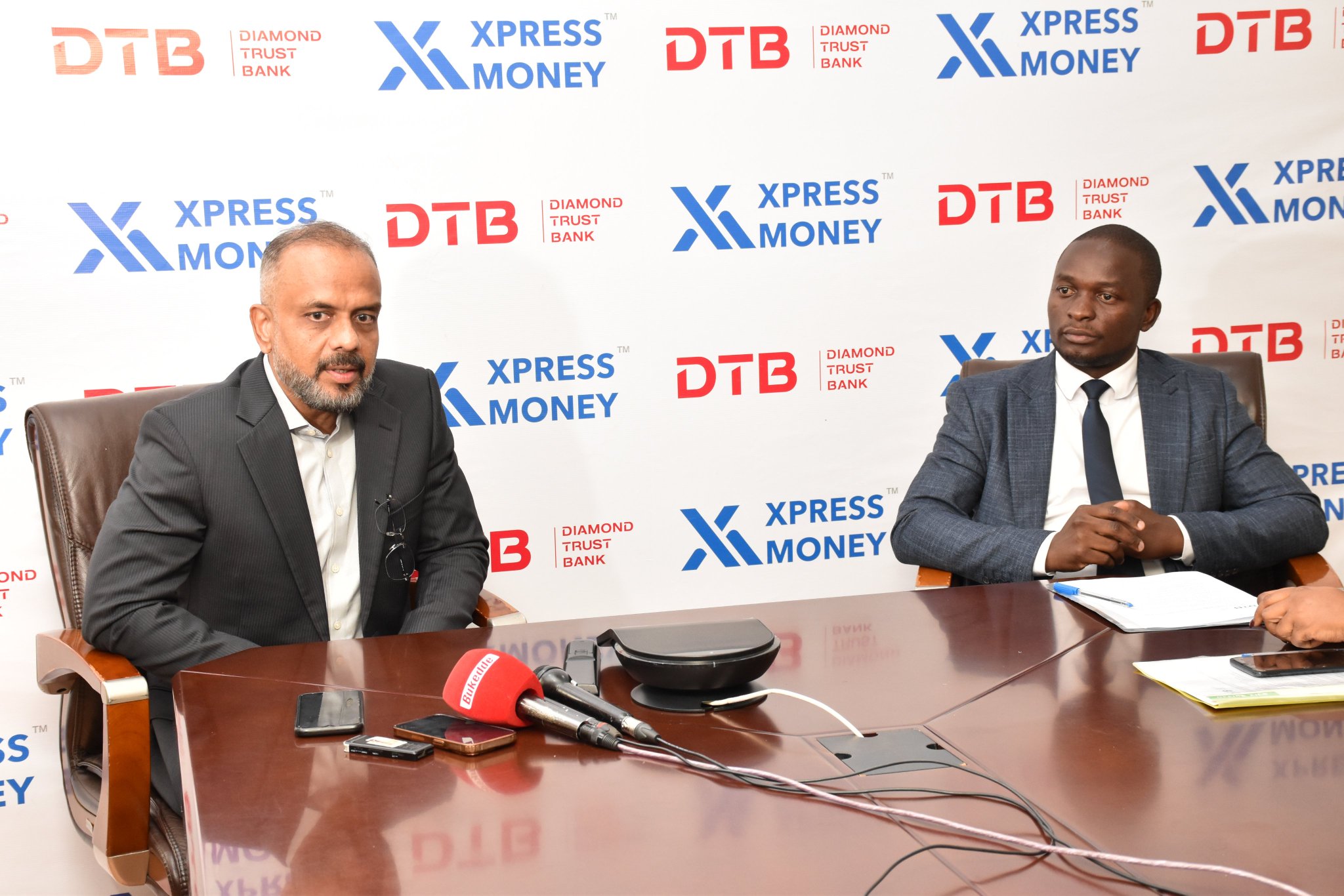DTB Ventures into Middle East Remittances Amid Calls for Gov’t Support to Diaspora
Haji Masoud Obeid, Chairperson of the Uganda Forex and Remittance Association (UFRA), urged support for money transfer operators and forex bureaus, calling them “critical intermediaries” in connecting families to diaspora earnings, citing liquidity challenges, fraud risks, and rising compliance costs, including anti-money laundering audits costing of up to 50 Million Shillings. This amount, he says, many small operators cannot afford.

Diamond Trust Bank (DTB) Uganda has expanded its international remittances platform to cover the Middle East and Asia, a region that has, in recent years, increasingly dominated inflows into Uganda.
For years, Uganda’s remittance landscape was dominated by diaspora communities in Europe and the U.S, which are beginning to plateau, according to records.
This comes as remittance services companies cry for regulatory interventions to help lower the costs of remittances and protection from cyber criminals.
Haji Masoud Obeid, Chairperson of the Uganda Forex and Remittance Association (UFRA), urged support for money transfer operators and forex bureaus, calling them “critical intermediaries” in connecting families to diaspora earnings.
“Forex bureaus are on the frontlines, but we are under immense pressure,” Obeid said told the 12th Annual Bankers Conference in Kampala.
He cited liquidity challenges, fraud risks, and rising compliance costs, including anti-money laundering audits costing up to 50 Million Shillings, an amount many small operators cannot afford.
Obeid also pointed to technology gaps and limited access to national ID systems, which complicate Know Your Customer (KYC) processes, especially for migrant workers with inconsistent documentation.
He called on the government to grant forex bureaus access to the NIRA database to enhance identity verification and combat fraud. He also urged a joint public education campaign to improve financial literacy among remittance recipients.
Announcing their shift towards the Middle East and Asia, DTB CEO Godfrey Ssebaana says the trend is shifting, with the UAE–Uganda and Asia–Uganda routes now leading in transaction volumes.
The change is driven by a growing number of Ugandans seeking employment in the Gulf and parts of Asia.
“Unfortunately, many Ugandans working in these new markets lack financial planning tools and risk management support, putting their hard-earned money and their families’ futures at risk,” Ssebaana said during the Annual Bankers’ Conference at the Kampala Serena Hotel.
He said in response, DTB is stepping up its efforts to provide secure, transparent, and user-friendly remittance solutions. Through a mix of bank account integrations and mobile money platforms, the bank ensures funds are reliably delivered and remain under the sender’s control.
Ssebaana said DTB has also strengthened partnerships with global remittance leaders such as Western Union, MoneyGram, and TerraPay, while investing heavily in digital technology to streamline the remittance experience.
With Uganda receiving 1.4 Billion Dollars annually in remittances, Ssebaana stresses that financial institutions have a responsibility to turn this inflow ina to sustainable impact.
He said DTB processes nearly 800,000 remittance transactions each year, giving it a clear view of diaspora behavior and evolving needs.
“Remittances are no longer just for consumption. Diaspora communities want safe, high-value investment opportunities back home, and we are responding with tailored solutions,” he said. Among these innovations is simplified access to government securities, including Treasury bills and bonds, previously seen as complex or inaccessible.
He said these offer diaspora investors stable returns in Uganda’s relatively stable currency and low-inflation environment.
Ssebaana said DTB is also using remittance data to develop alternative credit scoring models, enabling diaspora clients to qualify for business and mortgage loans without traditional collateral. Still, he acknowledged ongoing challenges. “Many in the diaspora want to invest but lack trustworthy guidance, or have been burned by unregulated real estate deals and fraudulent schemes,” he said.
To address this, the bank is investing in financial literacy and diaspora engagement, including virtual financial clinics and webinars focused on high-volume corridors like the UAE and Asia.
However, Ssebaana emphasised that banks cannot act alone. “Digital trust and cybersecurity are non-negotiable. We call on the government to strengthen cybercrime prevention and regulatory oversight to create a safer investment climate,” he noted.
The Ministry of Finance, Planning and Economic Development, says it is working to strengthen Uganda’s remittance ecosystem through commercial diplomacy, global partnerships, and forward-looking regulation.
This involves engaging destination countries and global institutions like the OECD, UN, and World Bank to ensure a seamless, secure cross-border remittance environment.
Some of the products the ministry is monitoring are stablecoins and blockchain-based assets, which it says are promising tools that, if well-regulated, could reduce remittance costs from between 10 and 20 percent to as little as one cent per dollar.
The ministry is also encouraging the use of regulatory sandboxes to safely pilot financial innovations and floated the idea of a Diaspora Investment Trust to offer migrant workers transparent investment channels.




